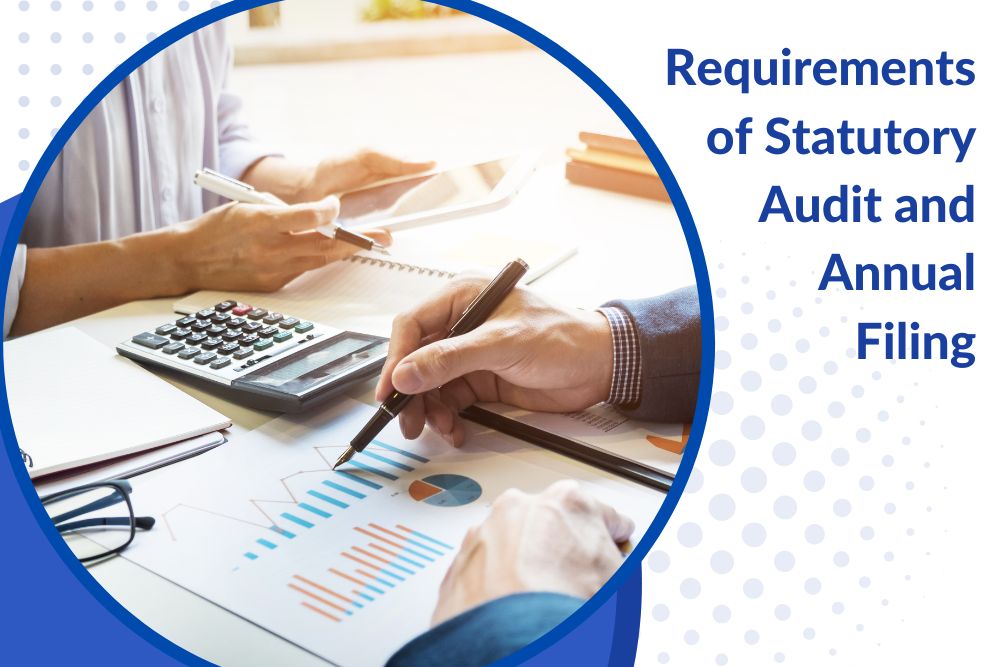10 Trusted Financial Audit Firms in Singapore to Ensure Financial Accounting Compliance
As stipulated by the law, all businesses in Singapore must conduct yearly financial audits performed by registered accountants. More than just for mere compliance, audits serve to analyse a business’s policies, strategies, practices, and goals to determine that they conform with the organisation’s objectives and to maintain its financial and operational reliability.
The process focuses on financial statements which are measured against the accepted accounting standards such as International Financial Reporting Standards and Singapore Standards on Auditing. This is exactly why audits are done by an independent party at the request of the company as this objectively demonstrates the organisation’s commitment to quality, integrity, and transparency to the clients.
In the following, we’ll detail the benefits and types of financial audits, signs that your business needs an audit, and how to outsource an auditing firm. If you need assistance in performing an audit for your company, check our list of recommended financial audit firms in Singapore.
How to Choose a Financial Audit Company to Help You Meet Financial Regulatory Compliance
Having a financial audit is essential to keep the company on track as the procedure evaluates how adequate the company's internal controls are. Without set rules, procedures, and mechanisms in maintaining accountability and fraud prevention, business processes are prone to irregular transactions, inadequate records, and poor system controls. And in the absence of an accurate financial and accounting information, the organisation will have a challenging path ahead for achieving its goals, minimising its spending, and increasing its revenue.
Auditing is an assessment of how the company is doing financially. Without it, the company cannot form an unbiased and independent opinion of its financial statements. The auditing process, done in accordance with accounting standards, is the only acceptable method to detect or determine irregularities in the organisation’s finances.

Why Businesses Need Financial Audits
Every year, all registered businesses in Singapore must accomplish three things: file their financial statements, hold a general meeting, and perform an audit exercise. These are done to uphold transparency as set by the Audit Act 1966, which set the provisions for account audits of both private companies and public bodies.
However, the annual audit process is not only for compliance, but also for objectively determining the reliability of the company’s financial statements. The audit committee that oversees the audit exercise also recommends improvements for its operations by considering the best and most systematic approaches to achieve its goals.
While the financial aspect may be the audit's focus, the evaluation and improvements suggested will affect everything from management to executives. The larger the organisation, the more critical it is to find solutions to enhance expenditure tracking, record keeping, and overall performance. The business can only attain its objectives through the use of consistent and reliable financial information, better internal control and governance, and an educated assessment of risks.
Even if there are no problems with the company’s spending, an audit can be a warning system for deficiencies and irregularities that company directors might have overlooked. An auditor can give advice based on objective evidence to formulate solutions that can help the business improve its operations.
Under the Singapore Companies Act, only companies with less than $10 million in revenue are given audit exemption. However, small businesses can also benefit from an audit exercise even if the Act does not require them.
For organisations planning to expand, particularly if they're planning to acquire a significant new property or another company, an audit is a must. Financial due diligence is crucial when buying or selling for business because it establishes the assets and liabilities of the property or another company.

Differences Between Auditing, Bookkeeping and Accounting
All three processes involve the handling of financial records, but there are unique responsibilities and tasks that distinguish each.
An audit process checks and verifies the entries in the books and ledger accounts prepared by the bookkeeper and accountant. This ensures that the financial accounting records are correct and the accounting processes adhere to the management's policies and generally accepted accounting principles. Audits are routine processes or can be requested if irregularities are detected or if it is needed for a potential financial decision.
Bookkeeping’ main objective is the recording of all the transactions in the company before the financial reports are written. The recording is done in cycles or up to the date for preparing the company's financial statements. The term should clearly describe the bookkeeper's task, which means writing and keeping track of books of accounts. Bookkeeping is done on a regular basis to keep records organised.
Accounting focuses on the preparation of the audited financial statements that has to be presented. The accountant examines, verifies, and evaluates the books, financial records, and financial reports. Accounting is done within a timeframe set by the company and is completed within a 12-month period, before the scheduled financial year end.

Types of Audits
Generally, financial audits are categorised into three main types based on the size and type of organisation.
Internal Audit
An internal audit is typically initiated by the company directors and a delegated internal staff. It is conducted to update the shareholders about the business’s finances and allow them to check that the company’s goals are being met. A recommendation is needed to evaluate procedures and audit risk management policies, determine operation processes, examine the effectiveness and recommend improvements.
External Audit
External audits are done by a third-party auditing service or an external auditor. This type of audit must be done by an external tax agency, which must be an organisation not connected to the company under audit. Here, the auditor follows a set of established auditing standards or guidelines to determine the accuracy of records of the company.
Government Audit
Government audit is the primary responsibility of the Auditor-General’s Office of Singapore or AGO. The AGO audits the parties or bodies that administer public funds and all government departments and offices' accounts and recommends issues related to public money, accounts, and stores.
Another type of audit is compliance audit, which is done to ensure that a company's policies and procedures comply with industry standards. Other types of audits are conducted to analyse the organisation’s goals, operations, and planning. There are also audits required to look for discrepancies in tax liabilities, particularly whether there are overpaid or underpaid taxes.

Auditing Step-by-Step Process
The details of the auditing process can vary, but auditing firms follow this general outline:
- Objectives
Before the audit, the audit's goals and scope must first be defined. The audit testing procedures are laid out, tasks are assigned to the auditing team, and the results and recommendations of the previous audit are reviewed to help formulate the objectives. Next, the audit is announced to the management, which then assists in assessing the review process and gathering the required financial records.
- Meeting
A meeting is conducted to discuss the length of the audit, the steps, and the objectives. This also helps in setting the expectations for the audit process, determining the responsibilities of the people involved, and giving an overview of the organisation’s operations and programs. A rating for risk assessment is set by the audit committee.
- Fieldwork
The auditor gathers and tests all the information to understand the internal controls. The relevant financial documents and records are examined, actions are tested, and compliance with company policies is evaluated. Some risks that are found during the audit are rated for the reporting. If the risk is high, recommendations are proposed by the auditor.
- Results and Review
When the audit results are confirmed, an audit report is written. Policy violations, inconsistencies, and control weaknesses are identified and discussed with the management. Recommendations are proposed based on the risk level and the management is made aware to fully understand the results.
- Post Audit
The auditor will meet with the management to discuss the audit’s results and observations and determine if its recommendations can be achieved. The management will also evaluate the audit process to gain insights that might be relevant for the next audit. A follow-up audit by an internal auditor may be necessary to check the adequacy and effectiveness of actions taken by the management based on recommendations of previous auditors.
In conducting a financial audit, auditors must conduct a risk assessment, keeping in mind the main types of audit risks: inherent risks (the risk of missing common errors and inconsistencies), detection risks (the risk of missing a material misstatement), and control risks (the risk of misstatements not being detected on a timely manner).

Financial Auditing Standards in Singapore
Standards are set to ensure the principles and governing practices underlying financial transactions. This is important for consistency in measurement, presentation, recognition, and disclosure of financial statements, as well as for making any major financial decision. The report can affect the decisions of possible investors, lenders, creditors, suppliers, customers, and the public.
It is for this purpose that the International Accounting Standards Board (IASB) was created. The IASB issued the International Financial Reporting Standards (IFRS) to ensure uniformity when assessing the financial situation of organisations. This the basis for Singapore Financial Reporting Standards (SFRS), the auditing standard used by companies in the country.
Since 2003, all companies have been required to comply with the SFRS. The SFRS is also the foundation for all accounting standards issued by different bodies in Singapore. As of 2022, there are 41 standards, each covering different areas such as accounting for inventories, recognition of revenue, and financial statement audit.
However, the SFRS was challenging to work with for most small- to medium-sized enterprises (SMEs) with limited resources. This resulted in the creation of a separate accounting standards called SFRS for Small Entities in 2010.
SMEs can apply for eligibility to SFRS based on the following criteria: the organisation publishes financial statements for external persons, the company is not publicly accountable, the business is a small entity with revenue and gross assets less than $10 million, and it has fewer than 50 employees.

Statutory Audit and Annual Filing Requirements
Under the Companies Act, all incorporated companies must submit financial statements to the Accounting and Corporate Regulatory Authority (ACRA) through the BizFile website.
Annual General Meeting
Companies must schedule an annual meeting within 18 months of incorporation and not more than 15 months from the last annual meeting. The AGM is not needed if the company wrote a resolution passed by all the members to dispense of the meeting.
Financial Statements
The annual financial statements are prepared based on the organisation’s economic activities throughout the accounting year. The reporting must be found on the Standards and consists of a Statement of Financial Position, Statement of Comprehensive Income, Statement of Changes in Equity, and Cash Flow Statement.
Audited Financial Statements
A company may be required to have its financial statements audited if it meets two of the following conditions: has more than 50 employees (or expected to do so within the year), a total annual revenue exceeding $10 million, and total assets exceeding $10 million.
Estimated Chargeable Income (ECI)
Companies must file the ECI at the Inland Revenue Authority of Singapore (IRAS) within three months of the company’s financial year-end. If the company has an ECI of zero, it must report a “Nil” to complete the requirements.
Annual Tax Return
The annual tax return is filed at IRAS before November 30. The basis for the taxation is the preceding year’s records. You may need to consult an accountant to ensure compliance.
Annual Return
This requirement is composed of the company accounts and company particulars. This must be filed at the ACRA within a month after the AGM. Details included are the company officers, financial auditors, and registered company address. Annual returns can be filed via BizFile.
Audit and Compliance for Foreign Businesses
All foreign companies need to be registered first. The organisation can only establish its fiscal year-end, which is the basis for tax incentives, once it has been incorporated. Foreign companies have the same fiscal obligations as locally-owned companies in Singapore.
Companies that are late or fail to comply with the requirements are subject to penalties from ACRA. Foreign investors can avoid penalties by consulting an auditing service once the company registration is completed.

Benefits of Outsourcing Financial Audits
Having an internal auditor is helpful in any business and has the advantage of the auditors already being familiar with the company’s workflow and processes. However, because they’re likely to be auditing people they have personal relations with – their coworkers, friends and employers – their reports are prone to be influenced by these relations.
Having an outsourced or external financial auditor removes this problem. Other benefits of hiring an external auditor are:
- An outsourced auditor is professionally trained and highly experienced. Contracting an external auditor removes the need to allocate resources for hiring or training additional internal auditors. When outsourcing an auditor, make sure that they are a certified public accounting or CPA to ensure that they have the necessary competencies and relevant certifications.
- Unlike an internal accounting team, an outsourced auditing service dedicates the time and effort to perform the financial audit and write reports promptly and objectively. You get more value for your money because of the comprehensive reporting and gathering of evidence.
- Professional auditing services can recommend solutions to inconsistencies in keeping and interpreting financial records. They also focus on risk-based approaches to help improve business processes without favouring any party involved.
- The quality and consistency of the company's financial records are prone to various errors. A third-party firm is a better choice for an unbiased and objective compliance audit. It is easier for government agencies such as IRAS and ACRA to accept findings and reports of an outsourced audit firm as such firms do not have a stake in the company.
- Experienced auditors can share their best practices and audit procedures, which means they can also assist in creating a better system for preparing financial documents that are audit-ready.

Signs Your Business Needs to Outsource Auditing
These are indicators that your company needs help from an outsourced auditor:
- You're spending too much time on auditing
- You’re using a disproportionate amount of time and human resource on audit preparation. If there is no dedicated auditor, the process takes away time from other essential tasks, such as running the business.
- You don't have the training and experience
- Most small, private companies will not have dedicated personnel with sufficient background and training to conduct a statutory audit. If hiring an internal auditor is not be cost effective, it would be better to simply outsource one.
- You're not catching all the errors
- An accounting firm can help you detect errors that you may not otherwise notice. An independent auditor is trained to look for specific red flags and discrepancies in your financial performance.
- You're not saving money
- Audit services can help you save money by identifying errors and inefficiencies in your systems. Any expanding company will need to handle more complex financial records. This requires developing a more systematic financial modelling to avoid errors and inconsistencies.
- You're not getting the most out of your business data
- If you're not sure how to interpret your financial information, an auditor's professional opinion can definitely help. Auditing services in Singapore will be able to analyse your data and help you develop systems to track and manage your data collection better.
- You're not meeting deadlines
- If you find that you're constantly missing deadlines, it may be time to outsource internal audits. This is because specialists get the job done more quickly and efficiently than you can. Non-dedicated accounting staff will need to cover different financial bases alongside their tasks which results in delays.
- You're not specialists
- An audit company will improve your processes and systems, saving you time and money in the long run. They can also help you identify areas of improvement and make appropriate recommendations for change.
- You're not getting unbiased feedback
- You do not have a full view of your company’s financial health. A fair and accurate representation can help you get an objective opinion about your business. Certified public accountants will identify areas of improvement and make recommendations or corrective actions for change.
- Your financial data may be incomplete
- Without a systematic method of handling financial statements, you can easily miss irregularities and other errors in your records. Outsourcing auditing can help you get the accurate data you need to make informed decisions about your business.
- You are not prepared for an audit
- Auditing specialists can help you develop contingency plans, update you with the regulatory requirements, and assess your systems to prepare for audit. Organised finance and accounting processes are needed to have your records ready for auditing.

What to Expect from Auditing Services
There are several types of auditing services that businesses can use to improve their operations. Financial statement audits are the most common type of audit, but there are also other audit types, such as operational audits, compliance audits, and enterprise risk management audits. Each type of audit has its specific purpose and can provide different benefits for businesses.
Financial statement audits are conducted to ensure that a company's financial statements accurately reflect its financial position. These audits can identify errors in accounting procedures and help businesses correct them.
Operational audits are conducted to evaluate a company's operational effectiveness. These audits can identify inefficiencies and recommend ways to improve processes and business growth.
Compliance audits are conducted to ensure that a company complies with applicable laws and regulations. These audits can help businesses avoid costly penalties and fines.
Enterprise risk management (ERM) audits assess a company's overall risk exposure. These audits can identify potential risks and recommend ways to mitigate them. ERM audits can be conducted annually or quarterly, depending on the organisation’s needs.

How to Find the Best Financial Audit Services
Choosing the best auditing services for your company must be based on several criteria, including experience, qualifications, analytical procedures, technology used, budget, quality, and reputation.
The lead auditor of the auditing firm must have all the requirements and qualifications expected of the job and experience in the industry. If the auditor has dealt with issues relevant to your type of company, they can provide appropriate services and recommendations.
Inquire about the technology they use for performing the audit. Your prospective audit firm must be up to date regarding modern auditing processes and data analytics so that the auditor can thoroughly analyse and interpret the data they find during the audit. This is part of quality assurance, which are crucial in maintaining best practices.
Lastly, you need to review the services they provide and read testimonials from past and current clients to determine that they’re right for your company. Do not forget to consider ongoing or post-audit support from the accounting firm regarding decision-making. The firm can guide you with the changes recommended in the audit report.
Auditing is not only the organisation of financial records but provides information to help stakeholders, investors, and clients decide if your organisation is transparent and trustworthy. To help you prepare for an audit, check the services offered by our top auditing firms.
Latest Becozon Offer
Boost your business with these exclusive deals by our esteemed Becozon partners
Looking for a CRM software?
Get customisable, cloud-based sales and operations CRM software suitable for any industry. Contact us for a demo today!
Contact Us




